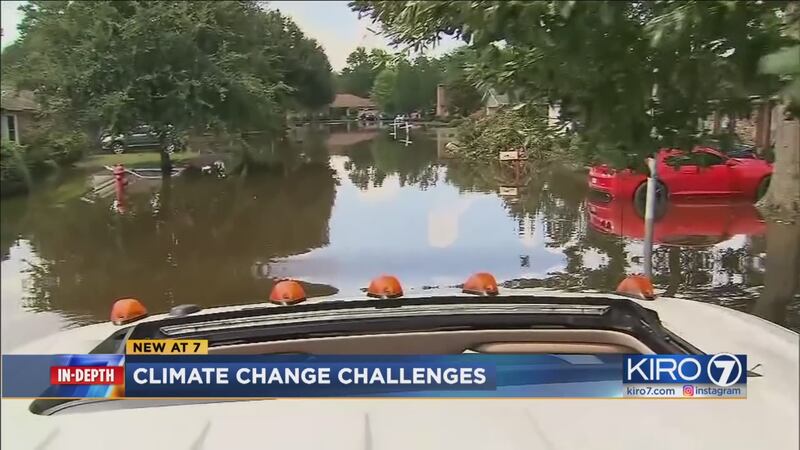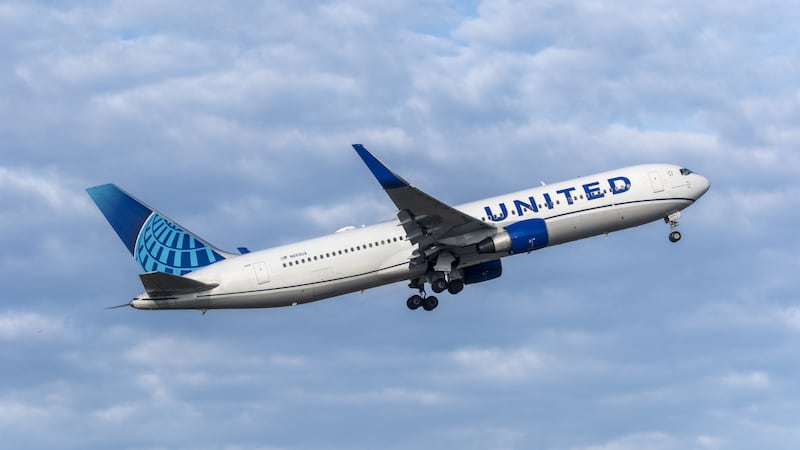SEATTLE — Scientists are predicting climate change will likely bring more destructive storms.
In fact, Hurricane Michael, now threatening the Florida coast, comes just one day after the release of a dire global report.
But scientists insist it is not too late -- yet.
We don't have to look far, say climate scientists, to see how we are already impacting our planet, our region, too.
Storms are fiercer, summers are hotter, wildland fires more numerous, our air is smokier.
Spencer Fairbanks, a Seattle native, says he is a climate change believer.
"Seattle's getting hotter every summer," Fairbanks said. "Every summer's getting hotter and drier. Absolutely. I'm greatly concerned."
According to this United Nations report, we should all be concerned.
The world's top climate scientists have concluded we will suffer even if we meet the the goal of keeping the global temperature from rising more than 2.7 degrees Fahrenheit.
"This report is pointing out what we're committed to by 2040," said Dr. Heidi Roop. "A majority of the world's population that's alive today will be alive in 2040."
Roop is a University of Washington climate scientist.
She says most of us will live to see the devastating consequences scientists are warning us about now.
Scroll down to continue reading
More news from KIRO 7
- Transgender middle school student barred from locker rooms during active shooter drill
- Seattle City Council debates erecting giant tents for the homeless
- Dog found skinned, mutilated in Thurston County
- Starbucks to offer backup child care benefits to employees
- Do you have an investigative story tip? Send us an email at investigate@kiro7.com
"And what they're predicting, extreme heat rate, increased wildfire rate that produces more smoke," she said. "Sea level is rising, will rise. Coastal communities will experience the negative consequences of that. And we're not talking 2100 or 2150. I mean the sobering part of this report is that it's going to touch all of our lives and not too long, right? We're talking 20 years."
In some ways, says Roop, the future is already here in the Pacific Northwest.
"The sort of what we call here at the Climate Impacts Group," said Roop, "our 'happy Northwest secret.'"
The secret is that the state has been quietly working to mitigate the impact of a warming planet.
"Department of Ecology, Washington Department of Transportation, Washington parks," said Roop. "These are all examples of places and agencies who are actively thinking about and asking this important question. What does climate change mean for me? What does it mean for an investment in a park or some infrastructure that I want to have communities using in the year 2100? What does it mean for a bridge that I want people able to successfully drive on in 2040 or even longer?"
Even so, the evidence isn't convincing everyone.
When Constance Kuhnly of Federal Way was asked if she believes the globe is warming, she said, "Ahh, yes and no. I mean, the summers, last summer was kind of hot. But I don't know."
Then she was asked whether, even with her skepticism, she would make changes to prevent the planet get any hotter.
"Maybe," she replied.
Experts recommend to stem the tide of climate change eating 30% less meat, using public transportation, not cars or airplanes, replacing old thermostats and appliances with more energy efficient ones.
Kuhnly said she could do the last two.
"Yeah, yeah," she said. But meat? "Yeah," she said. "I can't give up meat."
And Roop says individuals can do only so much.
Governments need to act, too.
She recommends that you vote your conscience when it comes to climate change.
And we could all be the beneficiaries.
Cox Media Group







